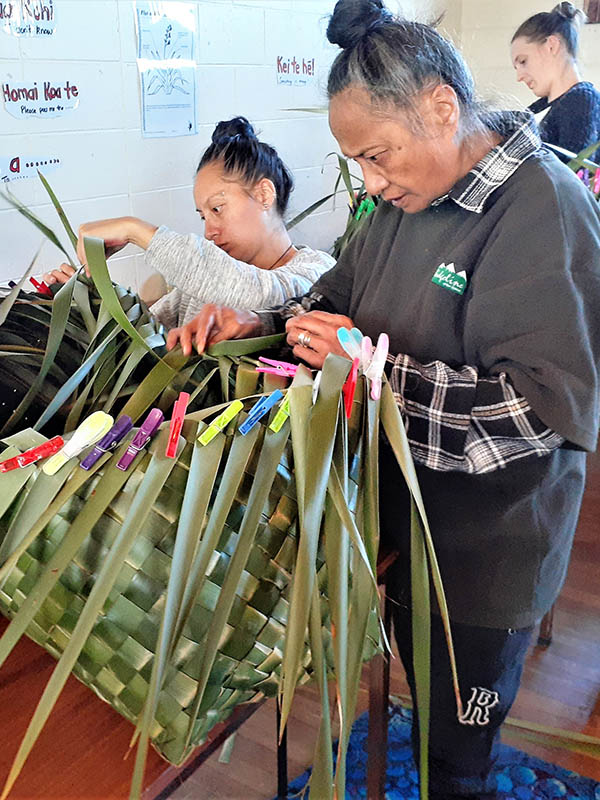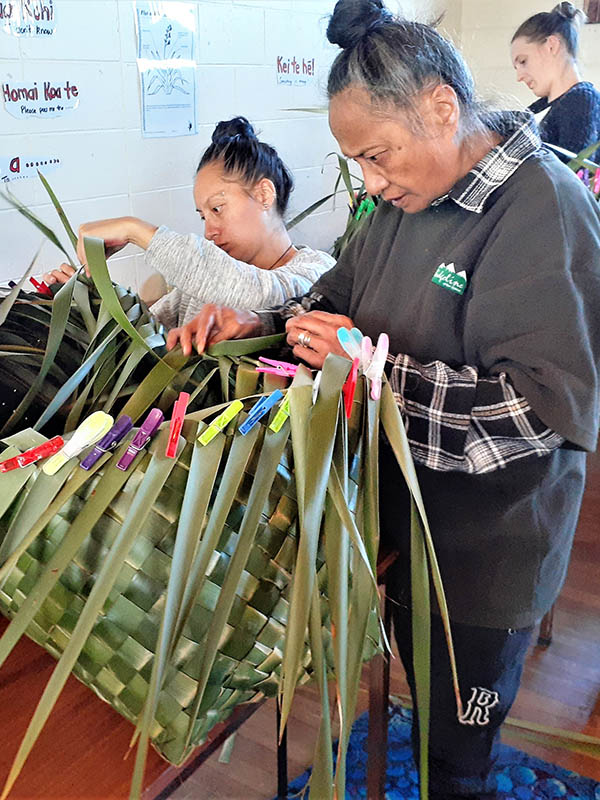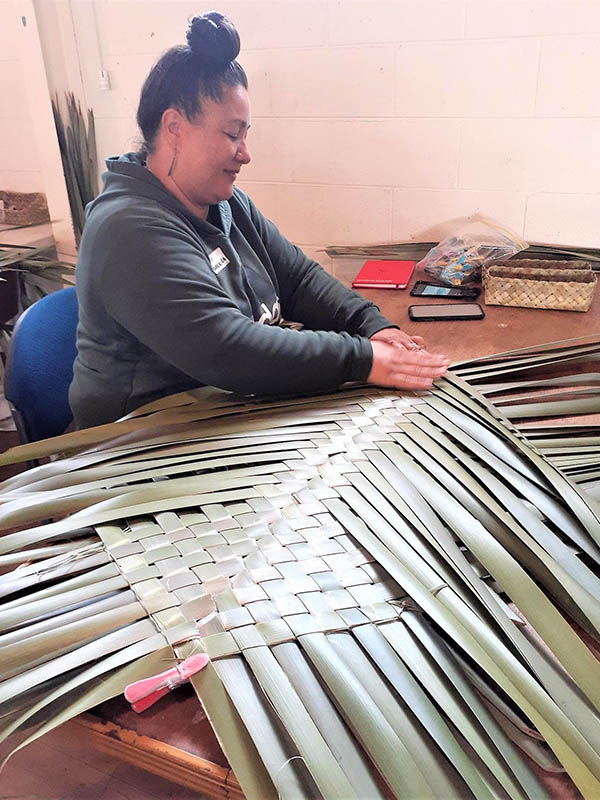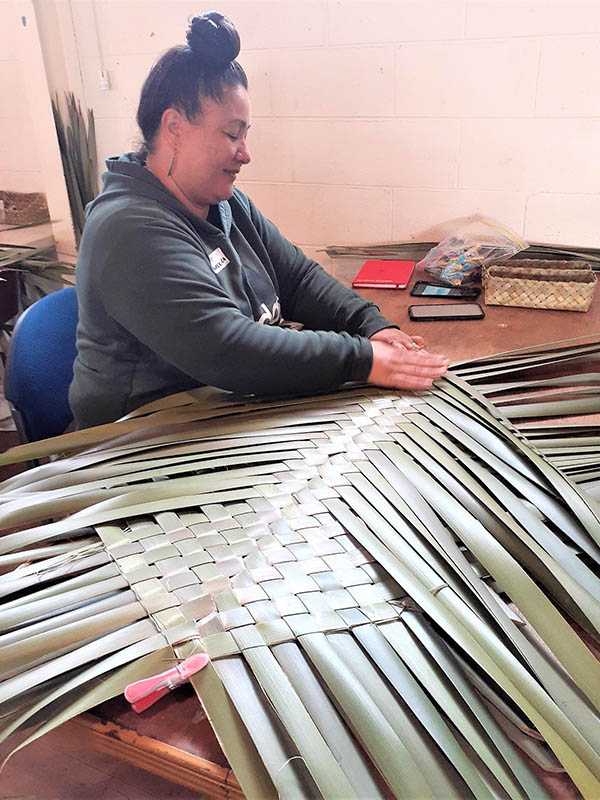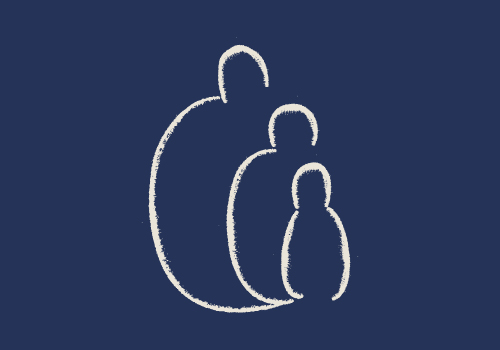
Weaving for future generations

16 June 2022
Of the many ways to prepare for a new arrival, creating a safe sleeping space for pēpi – and doing it by hand – is a great way to connect.
Helping hapū māmā and whānau achieve that goal is the work of Te Puawaitanga ki Ōtautahi Trust(external link) – a provider of health, education and social services to Māori. Eight times a year, expert weavers take whānau through the steps of weaving wahakura for their pēpi.
The taonga they create, alongside the mātauranga learned and reconnected with, means they leave with a full kete and a heart full of pride.
Sarah Wills, who helps facilitate the two-day wānanga , says all whānau are welcome – it's not just for those who are expecting.
We've even had a great grandfather come and weave one for his new moko that was being born, so it's a real whakapapa connection when you start bringing in all those threads.
Saving lives
Wahakura came about as a kaupapa Māori response to high rates of Sudden Unexpected Death in Infancy (SUDI) in the 1980s and 1990s.
A wahakura gives parents the option of sleeping close to their pēpi, but in a separate safe space, supporting close connection for breastfeeding and reducing the risk of overheating or accidental suffocation.
Wahakura have been widely adopted across Aotearoa as part of safe sleep programmes, leading to a 29% drop in infant mortality.
"Wahakura are a real special thing to have been born out of these terrible statistics," says Sarah.
Over 1,300 wahakura have been made by whānau since Te Puawaitanga ki Ōtautahi Trust's weaving wānanga started in 2014. An additional 1,000 have been sent out as gifts on behalf of the trust, for people unable to attend.
"For every wahakura that's made, that's one less pēpi that's being put at risk," says Sarah.
Connecting to te ao Māori
While wahakura are a relatively new sleeping space, the use of the harakeke plant to make them is what connects whānau to their whakapapa.
"We use harakeke to tie off the pito at birth, we use it for kai gathering, mat making, fishing... it's a very versatile plant that has always been used traditionally," says Sarah.
Drawing on this ancestral knowledge allows whānau to connect with te ao Māori, and the inclusion of wider whānau members gives everyone a chance to play a part in welcoming pēpi into the world.
As whānau work on their creations, they learn how harakeke is harvested and prepared to ensure cultural traditions are maintained.
Sharing this mātauranga with whānau at the wānanga often has a powerful impact, says Sarah.
"For those who have walked in the door and thought 'I don’t know if this is me', usually there’s a shift in their pride... there's pride that they are able to create something really special, that can protect multiple people in their whānau... it has a generational effect."
Safe sleep tips
Follow the P.E.P.E acronym for safe sleep:
-
place pēpi in their own bed or protective space
-
eliminate smoking in pregnancy and protect pēpi with a smokefree family, home, and car
-
position pēpi flat on their back to sleep
-
encourage and support mum to breastfeed.
To register your interest to attend Te Puawaitanga ki Ōtautahi Trust’s next wānanga email wahakura@omwwl.maori.nz
